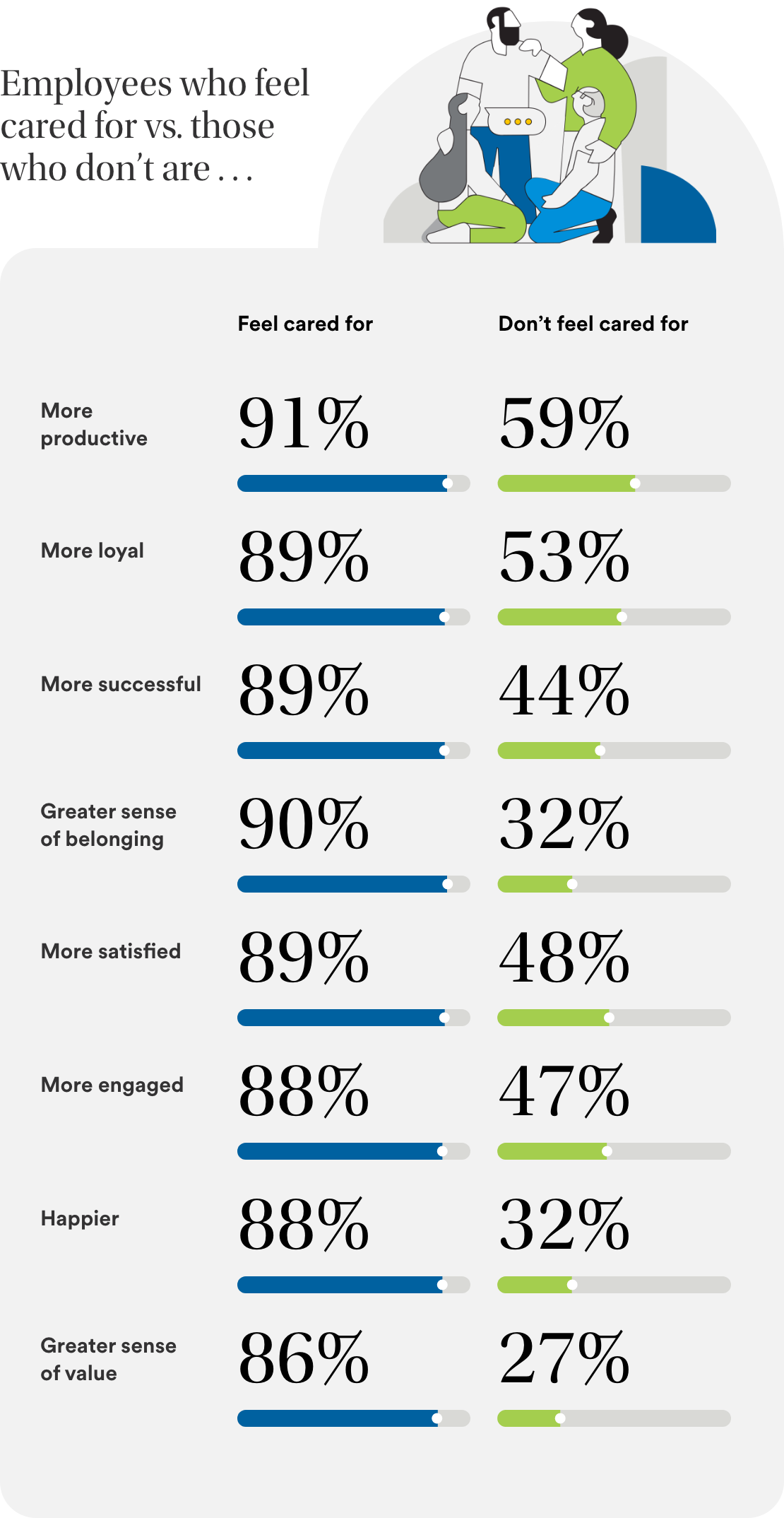The Whole Employee
For employers and employees alike, mental health has bulled its way to the forefront of a litany of workplace concerns. That shouldn’t come as any surprise. To say that workers are dealing with a lot is an understatement.
In speaking about the circumstances workers face today, Todd Katz, Executive Vice President and Head of U.S. Group Benefits at MetLife said, “The extraordinary macro environment that today’s employees are operating in must be examined. Employees have always had to continuously balance competing work and life priorities in their microenvironments; that’s not new. But we have to recognize that today’s workforce is also juggling a truly unprecedented array of macro stressors — from inflation and challenges with saving to geopolitical issues and election year anxiety — that not only affect their well-being now but are likely to multiply in the coming years.”
That said, is it any wonder that psychological safety is viewed as an increasingly important component of an employee’s overall holistic health? According to MetLife’s most recent Employee Benefit Trends Study, employees concerned about low mental health cited numerous factors:
- Financial concerns: 45%, with the greatest concern among women and Generation X.
- Stress from reasons outside work: 36%, with the most stress among disabled employees, low-income workers, and women.
- Balancing home and work life, with Millennials (33%) struggling the most.
- Stress about the economy, with caregivers to adults and women (32%) facing the most stress.
- Increased or increasing workload.
Over 90% of employees say that workplace well-being — of which psychological safety at work is a key part — is as important as their salary and 87% say they would consider leaving a company that does not focus on their well-being.1 Companies have heard them — and they’re responding decisively.
In fact, our research has discovered that employers are now taking steps to help ensure that their workplaces are providing a psychologically safe environment that not only enables employees to be their most productive but to feel that they are living their best personal lives as well.
How psychological safety benefits employers and employees
It is important to clarify what psychological safety in the workplace means. Coined by Amy Edmondson, professor at Harvard Business School, psychological safety is “The belief that one will not be punished or humiliated for speaking up with ideas, questions, concerns, or mistakes, and that the team is safe for interpersonal risk taking”. For example, employees may be victimized by harassment, bullying, or become anxious about artificial intelligence when their companies start using AI in the workplace. For the well-being of their employees, as well as the avoidance of reputational risk, companies must recognize these workplace pressures, promoting supportive cultures that foster open communication and psychological safety. An environment where workers feel comfortable voicing their needs and using all the resources that employers make available to them without self-consciousness or hesitation is one where they can focus on doing their best work.
This isn’t just a by the numbers “feel-good” exercise. Employers that create and maintain psychological safety in the workplace enjoy tangibly improved business outcomes from more holistically healthy workers. Perhaps more importantly, they gain visibility into moments that are likely to remain concealed from organizations where psychological safety is less of a priority. Indeed, among the most important benefits to employees are those that help them feel comfortable dealing with the challenges they face in their personal lives.
Our research also provides a stark contrast between companies that employ “always-on” care models pay off for employers and employees and those that don’t. The contrasts are striking:
Organizations that consider investing in such models enjoy a distinct competitive advantage and making the effort to improve employees’ perception of care in areas where they do not feel particularly cared for leads to significantly better talent outcomes. How much are employee benefits worth investing in to improve that perception? Given the prohibitive cost of replacing departing workers, the importance of employee benefits in demonstrating care can’t be overstated.
The motivating power of purposeful work
As the lines between work and life continue to blur the interest in purposeful work is growing on a parallel path. These experiences have a significant effect on employee well-being and talent outcomes. At most organizations, the moments and experiences outside of work are not fully accounted for in employee journey models and recruitment and retention strategies. But that kind of oversight can have consequences. Elements of the employee experience overlap and are mutually reinforcing; employees want them to work together in ways that help them succeed both professionally and personally. And purposeful work is among the highest-rated elements of the employee experience, with 68% of workers citing its importance as a factor in feeling cared for.1
For employer and employee alike, these findings have important and ongoing ramifications. The social, economic, and political forces roiling the workplace produce professional and personal stress that must be confronted continually. But in the midst of chaos, there is opportunity as well. A continued focus on providing a caring and supportive work environment can be a locus for more enlightened and productive employment relationships and an environment where all thrive. The commitment to utilizing benefits as the cornerstone of a strong organizational culture can also help individuals weather unexpected external events with renewed determination and resilience.



